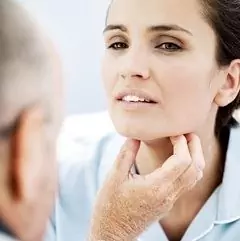Chronic pyelonephritis
Brief description of the disease

Chronic pyelonephritis is an inflammatory disease of the urinary system. At the moment, it is considered the most common among infections of the genitourinary system and is diagnosed in 60-75% of patients admitted to the hospital with complaints of urinary difficulties. The inflammatory process affects not only the pelvis, but also the kidney tissue, and in the final stages of the disease, the infection spreads through the glomeruli and blood vessels of the kidneys.
Children under the age of 7 and women - this is the risk group that pyelonephritis most often affects. Treatment of the disease is required specifically for women and children due to the anatomical features of their body - the urethra is too short, through which the infection enters the body more easily and faster. In women, the proximity of the vagina also plays a role, where the process of reproduction of harmful microorganisms is especially intense.
However, chronic pyelonephritis, the symptoms of which appear after acute pyelonephritis, is also found in men. It is usually associated with infectious diseases, urolithiasis, chronic prostatitis, as well as with some features of the male urinary tract and kidney abnormalities. In a strong half of humanity, a provoking factor in the development of pyelonephritis is the prostate adenoma, which affects the normal outflow of urine and facilitates the penetration of infection into the body. That is why it is imperative to carry out effective treatment for prostate adenoma.
In children, chronic pyelonephritis (treatment is most often required for girls) is a consequence of acute pyelonephritis or acute viral diseases (tonsillitis, flu, ARVI, otitis media). Difficulties in treating infection in children are explained by the fact that it quickly affects the urinary tract and leads to exacerbations of the infectious process in the kidneys.
Chronic pyelonephritis - symptoms
As a rule, signs of the disease appear after untreated acute pyelonephritis. Often, doctors manage to relieve acute inflammation, and they stop there, without taking care of the complete destruction of pathogens in the kidney and the restoration of the normal outflow of urine. Inadequate treatment leads to the appearance of chronic pyelonephritis, which constantly bothers the patient with dull, aching lower back pain. They pester people especially strongly in damp, cold weather. Note that from time to time the disease worsens, and the patient develops all the symptoms of an acute process: chills, fever, headache, as well as pain in the lumbar region, kidneys and hypochondrium.
Pyelonephritis - treatment and prognosis

The basic principles of treating the inflammatory process can be reduced to the implementation of several simple but important rules:
- drinking a lot of unsweetened and still liquid. The exceptions are cases when chronic pyelonephritis leads to pathologies of the cardiovascular system and a lack of blood circulation;
- taking infusions of diuretic plants. Lingonberry or cranberry leaves, corn silk, horsetail, bearberry and birch buds are especially effective;
- intensive antibiotic therapy, carried out according to the results of a urine test to determine antibiotic sensitivity;
- in especially severe and advanced cases, pyelonephritis, the treatment of which with conservative methods did not bring the desired results, requires surgical intervention. As a rule, drainage of the urinary tract is carried out for an unobstructed outflow of urine (puncture nephrostomy, laparotomy, stent placement, decapsulation).
Uncomplicated chronic pyelonephritis, the symptoms of which sometimes appear even in apparently healthy women, can be treated on an outpatient basis with antibiotics. Complicated chronic pyelonephritis leads to hyperthermia and intoxication. With this form, it is advisable to hospitalize the patient in a hospital, since the person may need intravenous antibiotics and fluids. The hospital also provides treatment for pregnant women. In this case, it does not matter at all whether the symptoms of the disease are weak or strongly pronounced, because an exacerbation can occur in the mother at almost any time and it is better to place her under the constant supervision of doctors.
In men, chronic pyelonephritis most often proceeds with complications, since in most cases it occurs against the background of bladder outlet obstruction and, accordingly, requires not only antibiotic therapy, but also measures aimed at achieving normal urine passage (trocar epicystostomy, alpha-blockers).
YouTube video related to the article:
The information is generalized and provided for informational purposes only. At the first sign of illness, see your doctor. Self-medication is hazardous to health!







